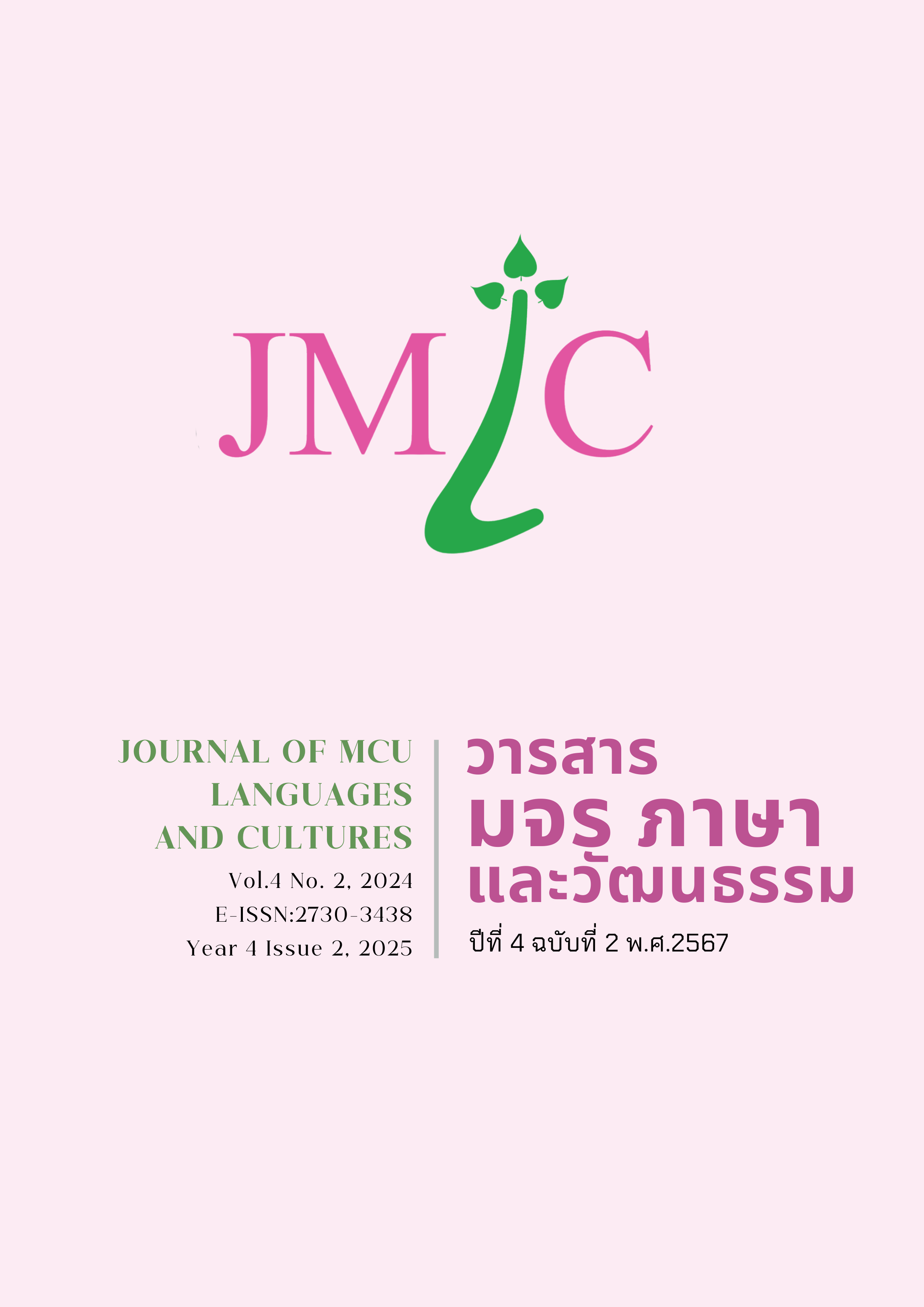การอยู่ร่วมกันที่พึงประสงค์ตามหลักสังคหวัตถุ ๔ ในสังคมไทยปัจจุบัน
คำสำคัญ:
การอยู่ร่วมกันที่พึงประสงค์, สังคหวัตถุ 4, สังคมไทยปัจจุบันบทคัดย่อ
เนื่องจากสังคมไทยปัจจุบันมีปัญหาต่าง ๆ มากมาย เช่น ปัญหาอาชญากรรม โจรกรรม และปัญหาอื่น ๆ เป็นต้น การอยู่ร่วมกันที่พึงประสงค์หรือต้องการ ต้องเป็นการอยู่ร่วมกันด้วยความการเอื้อเฟื้อเผื่อแผ่เสียสละแบ่งปันเฉลี่ยให้ ไม่ใช่ให้จนร่ำรวยหรือให้จนหมดเนื้อหมดตัว แต่เป็นการแบ่งปันให้เพื่อแสดงอัธยาศัยไมตรีผู้ให้ไม่จำเป็นต้องร่ำรวยหรือมีฐานะดีกว่าผู้รับเสมอไป และยังรวมถึงการช่วยเหลือสงเคราะห์ด้วยปัจจัยสี่ทุนหรือทรัพย์สินสิ่งของตลอดจนให้ความรู้ความเข้าใจพุดจาแต่สิ่งที่เป็นคุณประโยชน์หรือเป็นความจริงต่อกัน ช่วยเหลือด้วยแรงกายและขวนขวายช่วยเหลือกิจการต่าง ๆ บำเพ็ญสาธารณประโยชน์ทั้งช่วยแก้ไขปัญหาและช่วยปรับปรุงแก้ไขให้ดีขึ้นในด้านคุณธรรมจริยธรรมเพื่อเป็นแบบอย่างที่ดี และร่วมสุขร่วมทุกข์ร่วมรับรู้ร่วมแก้ไขปัญหาเพื่อให้เกิดประโยชน์สุขร่วมกัน สังคหวัตถุ 4 เป็นเสมือนยานพาหนะที่จะนำมนุษย์ไปสู่ความสุขความเจริญ สังคมของมนุษย์ประกอบขึ้นด้วยบุคคลที่มีภูมิหลังแตกต่างกันมีทั้งคนดีและคนไม่ดี มีทั้งคนที่ร่ำรวยและยากจน ดังนั้นจึงจำเป็นต้องอาศัย สังคหวัตถุ 4 เป็นเครื่องยึดเหนียวบุคคลแต่ละคนให้มีความผูกพันกัน เพื่อสังคมจะได้ดำรงอยู่ในความสงบ และได้รับการพัฒนาให้เจริญก้าวหน้ายิ่งขึ้น พระพุทธองค์ทรงชี้แนะไว้ว่าถ้าสังคมใดปราศจากสังคหวัตถุ 4 แล้ว สังคมนั้นก็จะมีแต่ความยุ่งเหยิง ไร้สันติสุข
เอกสารอ้างอิง
ธรรมรักษา. พระไตรปิฎกฉบับสุภาษิต. (2532). กรุงเทพมหานคร: รุ่งแสงการพิมพ์.
บุญสิริ ชวลิตธำรง. (2529). ธรรมโอสถ. กรุงเทพมหานคร: อัมรินทร์การพิมพ์.
พระพรหมคุณาภรณ์ (ป.อ.ปยุตโต). (2550). ธรรมนูญชีวิต. พิมพ์ครั้งที่ 4. กรุงเทพมหานคร: สำนักพิมพ์พระพุทธศาสนา.
พุทธทาสภิกขุ. (มปป.). บริหารธุรกิจแบบพุทธ. กรุงเทพมหานคร: อตัมมโย.
มหาจุฬาลงกรณราชวิทยาลัย. (2539). พระไตรปิฏกภาษาไทย ฉบับมหาจุฬาลงกรณราชวิทยาลัย. กรุงเทพมหานคร: โรงพิมพ์มหาจุฬาลงกรณราชวิทยาลัย.
สมเด็จพระอริยวงศาคตญาณ (วาศน์ วาสโน). (2528). สังคหวัตถุ 4. กรุงเทพมหานคร: โรงพิมพ์มหามกุฏราชวิทยาลัย.
สุจิตรา รณรื่น. (2538). ศาสนาเปรียบเทียบ. กรุงเทพมหานคร: บริษัทสหธรรมิก จำกัด.
สุทธิพงศ์ ปานเพ็ชร์. (2550). “การประยุกต์หลักพุทธธรรมกับวิถีชีวิตชุมชน”. รายงานการวิจัยอิสระ.
กรุงเทพมหานคร: มหาวิทยาลัยธุรกิจบัณฑิตย์.
ดาวน์โหลด
เผยแพร่แล้ว
รูปแบบการอ้างอิง
ฉบับ
ประเภทบทความ
สัญญาอนุญาต
ลิขสิทธิ์ (c) 2025 วารสาร มจร ภาษาและวัฒนธรรม

อนุญาตภายใต้เงื่อนไข Creative Commons Attribution-NonCommercial-NoDerivatives 4.0 International License.






